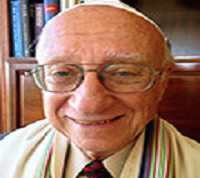When one door of happiness closes, another opens… but often we look so long at the closed door, that we do not see the one which has been opened for us — Anne Frank
We are all caught in the maze of chasing fame and fortune and, of course, power, in whatever form we can attain it in the delusive hope that it will provide us lasting and wholesome happiness.
We see hordes of people who seem to have it all—money, fame, houses, cars, yet who are miserable at heart, whose lives are devoid of the peace and contentment that all this was expected to bring.
Fortunately happiness does not rest in anyone’s hands but our own. Happiness is not found over the rainbow or in some mythical place. It’s around the corner, dancing down the street with no cares in the world.
Looking for happiness through the acquisition of objects is like trying to catch your own shadow. The closer you move toward it, the farther it moves away from you.
The problem is that we can so easily be seduced into believing that generating more external value—whether in the form of wealth, status or even achievement—leads to a greater sense of internal value. Each of these, pursued as a means to ensure our value, delivers diminishing returns over time.
Psychologists explain that what is essential is an engagement with something that gives meaning and purpose to one’s life; that is the real ingredient for building happiness. In the words of Carl Jung, “The least of things with a meaning is worth more in life than the greatest of things without it.”
Having purpose and meaning in life improves mental and physical health, increases overall well-being and life satisfaction, builds self-esteem, enhances resiliency and decreases the chances of depression.
Happiness can be found in the solace that comes from being upon the truth. It can be achieved by sincere worship, hastening to do virtuous, noble and beautiful deeds, and by performing acts of kindness or giving charity. These things all have the potential to make us happy, every day, under any circumstances. Even giving the smallest charity, in order to please God, can bring a smile to your face and a feeling of joy to your heart.
“And the likeness of those who spend their wealth seeking God’s pleasure while they are sure and certain that God will reward them (for their spending in His Cause), is the likeness of a garden on a height; heavy rain falls on it and it doubles its yield of harvest. And if it does not receive heavy rain, light rain suffices it.” (Qur’an 2:265)
In the Alchemy of Happiness, al-Ghazali begins by writing that “He who knows himself is truly happy.” Self-knowledge consists in realizing that we have a heart or spirit which is absolutely perfect, but which has been covered with dust by the accumulation of passions derived from the body and its animal nature. The essence of oneself is likened to a perfect mirror which if polished would reveal one’s true divine nature. The key to this polishing is the elimination of selfish desires and the adoption of a contrary desire to do what is right in all aspects of one’s life. As he writes, “the aim of moral discipline is to purify the heart from the rust of passion and resentment till, like a clear mirror, it reflects the light of God.”
The most striking claim that al-Ghazali makes about the prophets is that they are the happiest people, for they have achieved the ultimate goal of human existence. Al-Ghazali writes that every person is born with a “knowing pain in the soul” resulting from a disconnection from the Ultimate Reality. The tragic condition of Man is that our eyes have been so distracted by physical things and pleasure, that we have lost the ability to see the unseen. This is why people are so unhappy: they are trying to relieve this pain in the soul by recourse to physical pleasure. But physical pleasure cannot relieve a pain that is essentially spiritual. The only answer to our condition is a pleasure which comes not from the body but from self-knowledge. The idea of happiness is not a human universal that applies across all times and all cultures, but something that remains fluid through the eons. There is, however, overwhelming agreement that the texture of the lives of all happy people shows that they connect very well with the world around them and have a purpose to their lives which buffers them from the mart of worldly strife. “Life has meaning,” as Robert Browning reminds us, and “to find its meaning is my meat and drink.” These happy people are like Mitya in The Brothers Karamazov, “One of those who don’t want millions, but an answer to his questions.”
Sadly, most of us have lost focus of this age old equation and are pursuing a mirage––the conquest.
The essence of happiness lies in contentment. Contentment is not possible by expanding or shrinking the limitless expanse of this beautiful universe. It has to be cultivated in our hearts and minds. It cannot be sought in the world around us; it has to be discovered in one’s inward self. For in many cases, the wealthiest classes of people may be the least contented and the poorest ones may be the ones most contended. Contentment has no relation with human needs. On the contrary, needs become defined by it.
It is the duty of parents and teachers to teach children to develop the right template for happiness and then equip it with a moral compass that can keep the template intact. A most ideal template is one that has all these ingredients—sensitivity to the feelings and needs of others and skills that are best learned early—notably: empathy, responsibility, kindness, reciprocity, generosity, and the value of fairness.
Gloom sets in when our conscience is stained by desires and impressions of wordiness. It needs to be polished by a deep journey inward. A successful journey opens our spiritual eye to the wonders we have been gifted with. Instead of comparing ourselves constantly with “the haves” and feeling deprived, we start weighing our good fortunes against those who have little. Fyodor Dostoyevsky emphasized the same point: “Man only likes to count his troubles; he doesn’t calculate his happiness.”
Every single one of God’s commandments aims to bring happiness to the individual. This applies in all aspects of life, worship, economics, and society.
“Whoever works righteousness — whether male or female — while he (or she) is a true believer verily, to him We will give a good life (in this world with respect, contentment and lawful provision), and We shall pay them certainly a reward in proportion to the best of what they used to do (i.e. Paradise in the Hereafter).” (Qur’an 16:97).
Following the teachings of Islam and striving to please God is a constant reminder that this life is but a transient pause on the way to life everlasting.
“But whosoever turns away from My Reminder (i.e. neither believes in this Qur’an nor acts on its teachings) verily, for him is a life of hardship, and We shall raise him up blind on the Day of Resurrection.” (Qur’an 20: 124)
We are lost in a world of delusion and attachment, too caught up to reflect upon the words of these wiser souls. They spoke out of their divine experience to awaken us from our slumber. It is our duty to use these pearls of wisdom to discover that inner happiness. Instead of comparing ourselves constantly with “the haves” and feeling somehow cheated and deprived, it would do us a world of good to weigh our good fortunes against those who have little. Our time on this earth is not infinite. We need to welcome any opportunity to smile and can’t afford to waste one second. There’s real purpose in our desire for happiness—it’s not selfish to pursue it.
The key to being happy in this world and the next is seeking the pleasure of God, and worshipping Him, without associating partners with Him.
And of them there are some who say: “Our Lord! Give us in this world that which is good and in the Hereafter that which is good, and save us from the torment of the Fire!” (Qur’an 2:201).





